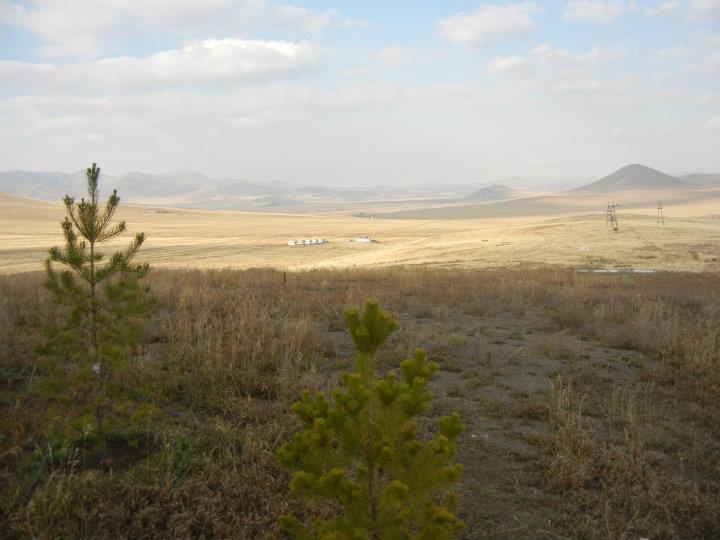
Taking Steppes: Mongolian Civil Society Leads the Way on EITI
Since the massive Oyu Tolgoi gold and copper mine opened in the Gobi Desert in 2010, billions of Mongolian tugrugs have poured into the government’s coffers in Ulaanbaatar. Rio Tinto, the Anglo-Australian majority owner of the mine, provides grants and donations to communities in the surrounding Khanbogd district, as well as year-round assistance to local camel and goat herders. Similarly the Mongolian company Energy Resources, which owns 34 percent of the mine, has funded new construction in the nearby Tsogttsetsii district, a development that has drawn praise throughout the country. New jobs, a new power station, and many other grants and donations have brought prosperity and growth to the Omnogovi province, which is home to both districts.
But some citizens have criticized these companies rather than praised them. A team of Mongolian civil society representatives who participated in last year’s global conference of the Extractive Industries Transparency Initiative (EITI) in Sydney expressed concerns that such contributions from mining companies, though recognized and appreciated, are not enough.

Mongolia’s vast wilderness is rich in copper, gold, coal and other minerals. (Photo: Andrew Bauer)
At a September discussion organized by Mongolia’s Publish What You Pay coalition (PWYP), in partnership with the Revenue Watch Institute, participants agreed that compliance with the new EITI Standard is even more important. And for the districts at the heart of Mongolia’s transformative mining boom, that begins with community-level engagement.
For their part, local stakeholders are ready. In recent years, Khanbogd and Tsogttsetsii have established official sub-councils chaired by deputy governors and comprised of representatives of local governments, mining companies and civil society. In 2010, the two districts piloted local EITI reports, a tailored version of national reports gathered in Ulaanbaatar—and the initiative is spreading. At the recent PWYP meeting, citizens from the neighboring Dornogovi province, which does not have mines but which has been affected by coal transport routes, arrived on their own initiative from a distance of 200 kilometers to join the conversation.
Compared to just a few years ago, rural citizens now demand very specific information about the mining operations within their borders. For example, herders want to know the names of license-holding companies, their ID numbers and owners, so as to hold them accountable from day one. More importantly, they want to know which mountains and hills are affected and how close their homes and winter houses sit to the licensed acreage. One herder even petitioned for the use of local names for the territories under license instead of unfamiliar nomenclature from the capital.
In this way, national discussions about transparency are shifting to the regions most affected. Mongolian laws require that local citizens and elected assemblies formally consent to the issuance of mining licenses, but residents and especially herders are too often left out of the process, while contracts signed with the mining companies are often far from public scrutiny. When good governance is missing at the local level, the EITI Standard is difficult to implement. Local authorities can help monitor and inspect progress, now and in the future, through district resources and financing. Information gathered locally can be distributed to households via newspapers, TV and radio. It can also be shared through central information centers, community meetings, or so called “citizens halls,” a popular platform for public dialogue.
The work to implement the new EITI Standard in rural Mongolia is just beginning. PWYP member organizations understand that simply adding new requirements is not sufficient. They agree that the country needs a general model for improving transparency at the local level and a proven methodology based on years of experience and partnership. Local efforts in Khanbogd and Tsogttsetsii are a start, and they offer hope to other districts that seek to benefit from Mongolia’s wealth of natural resources.
Tserenjav Demberel is the executive director of Transparency Foundation, PWYP Mongolia member. Dorjdari Namkhaijantsan is the Mongolia country coordinator for Revenue Watch.
Authors


Dorjdari Namkhaijantsan
Mongolia Manager